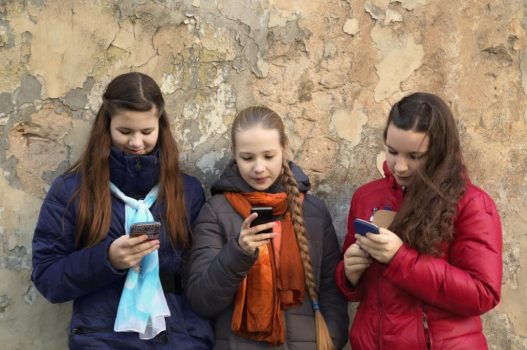It’s sometimes worth reflecting on how new social media is. Facebook didn’t exist before February 2004, Twitter was launched in 2006 and Instagram in October 2010. So has the past couple of years, with most schools focusing on these three platforms, lulled us into a false sense of security that we’re doing the right things online?
If so, things are certainly on the move now – below we’ve grouped what could be the most important seven changes for this year into three groups – the ‘good’ – opportunities to explore, the ‘bad’ – changes that we need to follow – and ‘the ugly’ – areas where safeguarding or privacy concerns mean schools need to be careful!
The good…
1. More bandwidth available
The latest UK government update shows that 70% of households can now access gigabit broadband – up from just 10% in 2019. There’s been a similar steady rise in the rollout of 5G mobile coverage, with most cities and larger towns having at least one network available (see the latest information here).
This means that existing platforms can now share richer and more engaging content – whether that be short videos, augmented reality, live broadcasts, or podcasts. While this can be a challenge for many industries that don’t really have a lot of exciting things going on, schools are full of exciting news!
2. A focus on authenticity
The most talked about new platform this summer is BeReal– the stripped back social media that encourages people to share what they are doing ‘in the moment.’ There’s a lot of debate about whether this is good or bad for people’s mental health, and of course there’s a huge conflict with schools trying to keep mobile phones out of classrooms, but this is perhaps a good step away from the artificial nature of the ‘perfect Insta selfie.’ Similarly, following the extreme weather events of the summer, there’s a huge interest in sustainable and environmentally friendly stories – something that schools can tap into.
3. The rise of the ‘content creator’
The two changes above have led to a huge rise in the number of ‘content creator’ jobs – rather than just focusing on writing marketing copy, these roles expect expertise in videography, photography, search engine optimisation and social media management. Schools may see this as a challenge – how do you compete with organisations that can spend money on this? The answer lies within the school walls – find students who have or want to develop these skills – and make your own creators!
The bad…
1. The fall of Facebook?
It might just be a small change, but Meta (owner of Facebook and Instagram) reported its first year on year quarterly decline in revenue this year. With almost two billion people using Facebook and 1.2 billion using Instagram regularly it’s obviously not the end for these platforms, but it may signal that schools should be looking at other platforms, especially if you’re targeting younger age groups for example for Sixth Form recruitment.
2. The rise of dark social
Facebook may be seeing a plateau in numbers, but its sister platform WhatsApp is growing strongly with over two billion people using it globally. The challenge for schools is that it’s a ‘dark’ medium – parents, students and others can share information about a school without any way of their knowing. The best way to combat this problem is to engage parents and encourage them to talk to the school if they see anything they don’t believe!
The ugly…
1. TikTok privacy concerns
TikTok has been the most discussed social media platform in our school social media training over the past year. There’s no doubt that students (and increasingly parents) use it a lot, and some school marketers have started to use it to promote their schools. However, internet security experts have a number of concerns – as set out in this article in The Guardian. It’s a good case study about how platforms can gather and share information.
2. The ‘manosphere’
Over the summer the best news for school safeguarding professionals has been the banning of influencer Andrew Tate from major social media platforms, but his views and videos have had a significant influence and are still being shared by others. This article includes advice from teachers and charities if the issue comes up in your school.
Read more here…





